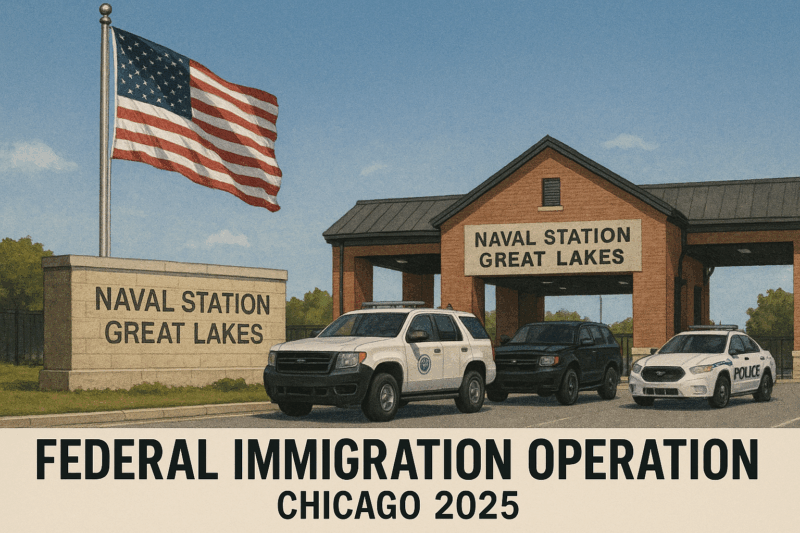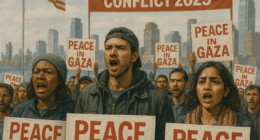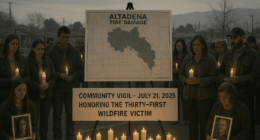A Community on Edge as Federal Forces Mobilize
The air in Chicago’s suburban communities feels heavy with uncertainty this week. Behind closed doors, families with mixed immigration status are having conversations no parent should face—contingency plans for potential separation, emergency contacts, and the terrifying possibility of enforcement actions that could tear their households apart. As Governor JB Pritzker announced Wednesday, federal immigration agents are expected to begin operations in the Chicago area by Saturday, with approximately 300 agents already being positioned for what promises to be an intensive enforcement surge.
Human Toll of the Looming Immigration Enforcement
The impact on Chicago’s diverse communities extends far beyond statistics and political maneuvering. In North Chicago and Waukegan, where many of the federal agents will be stationed in local hotels, Latino families are grappling with fear that has already begun reshaping daily life. Children are asking why their parents seem worried, while mixed-status families—where some members are documented while others are not—face the nightmarish prospect of family separation.
“I don’t believe that a time has come in our country where the National Guard and ICE are coming into our community to basically scare the Latino population,” said North Chicago Mayor Leon Rockingham Jr., voicing what many residents feel but dare not say aloud. “I didn’t think our country would ever get to that point.”
Local officials like Rockingham and Waukegan Mayor Sam Cunningham are now taking concrete steps to protect their constituents, understanding that federal enforcement operations could fundamentally alter the fabric of their communities. The psychological toll is already evident—families avoiding public spaces, parents keeping children home from school, and entire neighborhoods living under a cloud of apprehension.
Facts and Figures Behind the Federal Operation
The scope of the planned Chicago immigration enforcement operation reveals itself through carefully gathered intelligence and official briefings. According to verified information shared with local law enforcement, approximately 300 immigration agents are being deployed to the greater Chicago area, with operations expected to commence this Saturday.
The logistical center for this operation will be Naval Station Great Lakes in North Chicago, transforming this military installation into the nerve center for immigration enforcement activities. Federal agents will be housed in hotels across Waukegan, Gurnee, and potentially other surrounding communities, creating a visible federal presence that extends beyond Chicago’s city limits.
The operation involves multiple federal agencies working in coordination: Immigration and Customs Enforcement (ICE), U.S. Customs and Border Patrol, and the U.S. Department of Homeland Security. Wednesday morning briefings included representatives from these agencies meeting with local law enforcement officials, naval personnel, and police chiefs to coordinate the unprecedented deployment.
Political Tensions and Constitutional Challenges
This Chicago immigration enforcement operation unfolds against a backdrop of significant political and legal controversy. President Trump continues pressuring Governor Pritzker to formally request National Guard deployment to address Chicago’s crime rates—a request Pritzker has consistently refused, calling such military intervention on American city streets “authoritarian.”
The timing coincides with a federal court ruling in California that declared Trump’s National Guard deployment there unconstitutional, creating legal precedent that could affect Chicago operations. A federal judge issued an injunction Tuesday prohibiting the Trump administration from using federalized National Guard troops for law enforcement activities in California, a decision Defense Secretary Pete Hegseth believes will be overturned.
Meanwhile, Trump’s political operation sent fundraising emails Wednesday declaring “CHICAGO WILL BE LIBERATED” and seeking donations as small as $15 to support what they term the “MAGA Blitz.” This political messaging starkly contrasts with the human reality facing Chicago families.
Constitutional Questions and State Response
Illinois Senators Dick Durbin and Tammy Duckworth have requested meetings with Navy leadership regarding the use of Naval Station Great Lakes for housing ICE officers. Durbin, as the top Democrat on the Senate Judiciary Committee, is demanding hearings on Trump’s military deployment threats to American cities.
Governor Pritzker maintains that while Illinois “cannot stand in the way” of federal law enforcement, the state will challenge any illegal actions in court. He refuses to provide Trump with evidence that could support future litigation by formally requesting federal assistance.
What Lies Ahead for Chicago Communities
The weekend deployment represents just the beginning of what could be a prolonged period of heightened immigration enforcement in Chicago. Local officials are preparing community response plans, including legal aid coordination and family separation protocols.
The broader implications extend beyond immediate enforcement actions. This operation could serve as a template for similar deployments in other major metropolitan areas, fundamentally changing how federal immigration policy intersects with local communities.
Educational institutions, healthcare facilities, and community organizations are quietly developing strategies to protect vulnerable populations while maintaining essential services. The challenge lies in balancing cooperation with federal authorities while safeguarding community trust and safety.
Community leaders emphasize the importance of know-your-rights education and legal preparedness. Local organizations are expanding rapid response networks and emergency support systems for families potentially affected by enforcement actions.
Preparing for an Uncertain Future
As Saturday approaches, Chicago finds itself at the center of a national conversation about federal power, state sovereignty, and human dignity. The approximately 300 immigration agents preparing to begin operations represent more than an enforcement surge—they symbolize a fundamental shift in how federal immigration policy impacts American communities.
For the families directly affected, the coming days will test community resilience, legal protections, and the strength of local support networks. The Chicago immigration enforcement operation may ultimately be remembered not just for its political significance, but for how communities responded to protect their most vulnerable members during a time of unprecedented federal intervention.






